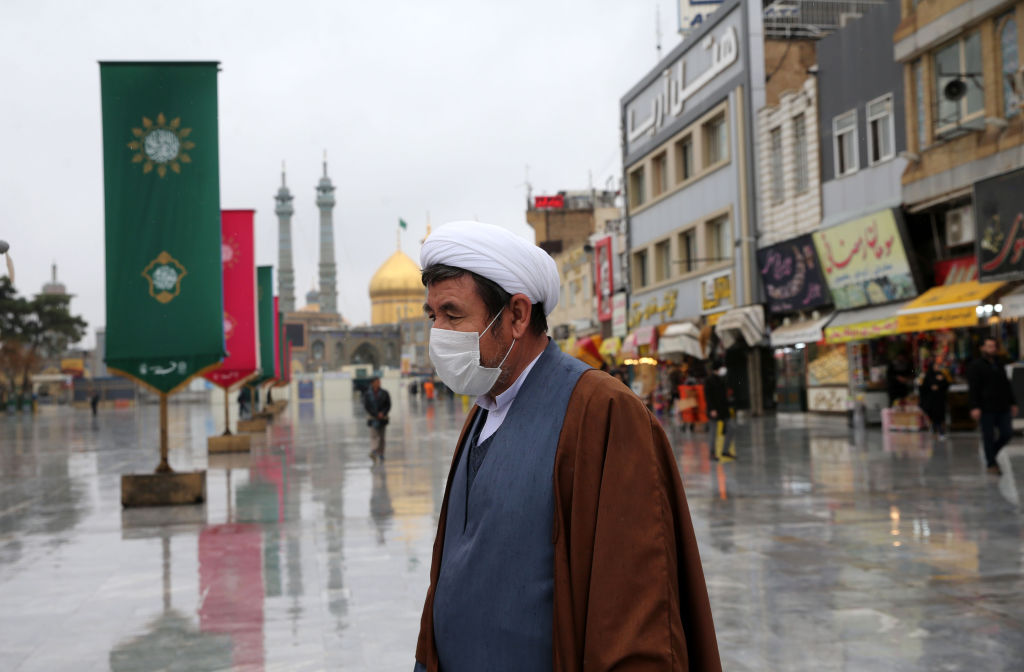America, Iran and Covid-19: humanitarianism versus regime change

While the United States and China squabble about the origins of the novel coronavirus, a more serious contest is underway over the severe economic sanctions against Iran, Syria, Venezuela, Cuba, North Korea and, to a lesser extent, Zimbabwe.
Some argue that it’s necessary to ease the sanctions, if only temporarily, to better coordinate the global fight against the virus and to minimise economic hardship in these countries for basic humanitarian reasons.
Those who want the sanctions to continue, especially unilateral US sanctions, say they don’t apply to the supply of medical or other humanitarian needs, so there’s no need to ease them.
The contest is largely focused on Iran, a country of some 83 million people, and the epicentre of the pandemic in the Middle East. As of 4 April, Iran had 55,743 confirmed cases, the seventh highest number globally, and 3,452 related deaths. While the numbers affected are high, the death rate is likely limited by the low median age of Iran’s population, about 32 years.
To put this in a regional context, only four of Iran’s Middle Eastern neighbours had more than 1,500 cases: Turkey with 23,934, Israel with 7,851, Pakistan with 3,157 and Saudi Arabia with 2,402. The remaining countries had fewer than 1,500 confirmed cases each and most had under 500.
Some of these numbers are widely considered unreliable or deliberately understated. It has been claimed that Iran initially understated its numbers, and Pakistan’s remain an underestimate. Turkmenistan, a Central Asian neighbour, claims it has no cases and its government-controlled media have shunned the use of the word ‘coronavirus’. Syria has 16 confirmed cases, but given the civil war, the displacement of millions of its people, and the country’s totally inadequate medical facilities, its officials simply wouldn’t know.
While Iran got off to a slow start in implementing adequate countermeasures, indications are they are now in place. Early on, the World Health Organization and China provided specialist medical advice and support, including urgently needed medical supplies. Iran also lodged an early request with the International Monetary Fund for US$5 billion to help mitigate the negative effects of the virus on its economy.
While Iran wrestles with its response to the pandemic, there’s considerable concern among health professionals about some neighbouring countries that are highly vulnerable to infection and have a limited capability to prevent the virus’s rapid spread, especially among crowded refugee communities, and to treat those infected. The economic and social impacts on their populations, and their viability as functioning states, could be devastating.
Those who want sanctions against Iran and other countries eased to help combat the virus are committed to fighting it and providing humanitarian support to alleviate suffering from the economic consequences. They include UN Secretary-General Antonio Guterres, UN High Commissioner for Human Rights Michelle Bachelet, and the WHO.
Unexpected support for the suspension of specific sanctions has also come from Democrat presidential candidates Joe Biden and Bernie Sanders, and from more than 30 other Democrats in the Congress and the Senate. They say saving lives is the right thing to do, both morally and because of broader US national security interests.
While the EU hasn’t openly challenged US sanctions in the coronavirus context, it has agreed to send €20 million in humanitarian aid to Iran. And France, Germany and the UK have separately exported humanitarian goods, including food and medicine, to Iran under their INSTEX trade mechanism. This is reportedly the first time INSTEX has been used since its inception in 2018.
Presumably the US was consulted beforehand to ensure that banks and trading companies associated with both actions wouldn’t incur punitive responses. Although Secretary of State Mike Pompeo has said several times that unilateral US sanctions don’t apply to medical or humanitarian goods, many international banks and companies have claimed intimidation and refused to become involved for fear of direct or indirect US reprisals.
The US administration has stood firm in its opposition to easing sanctions, even temporarily. Its principal concern is that the proposed humanitarian assistance would undermine President Donald Trump’s ‘maximum pressure’ campaign to facilitate regime change, especially in Iran, but also in Venezuela.
Washington also believes that Iran would exploit humanitarian assistance to divert scarce resources to enable continued support to its ‘malign’ activities regionally. The US, therefore, isn’t expected to support Iran’s IMF bid for special economic assistance.
Trump did make a tentative offer to help Iran last month, though it was rejected because Tehran regarded it as unacceptably conditional. A separate offer by Pompeo to help Venezuela effectively insisted that President Nicolas Maduro step down from office. It, too, was rejected.
The administration’s position has damaged the US’s image and left Trump and Pompeo, in particular, looking insensitive and uncompromising at a time of global crisis and humanitarian need. In contrast, both Biden and Sanders have quickly picked up on the negative implications for the US and highlighted that there are wider human and national security interests at stake.
